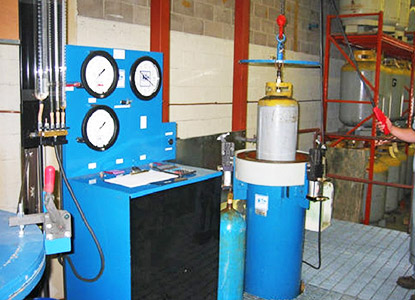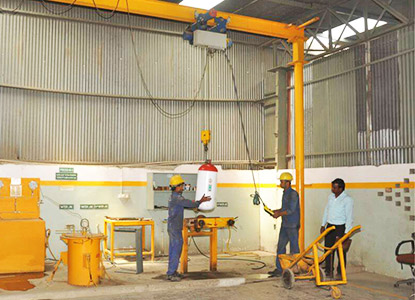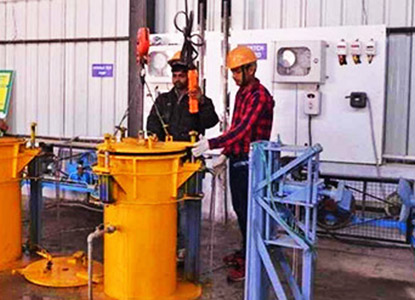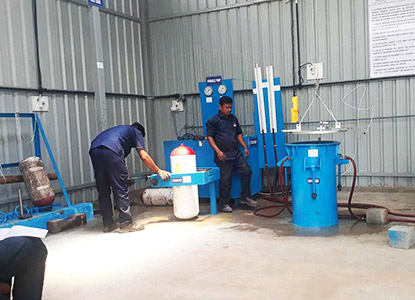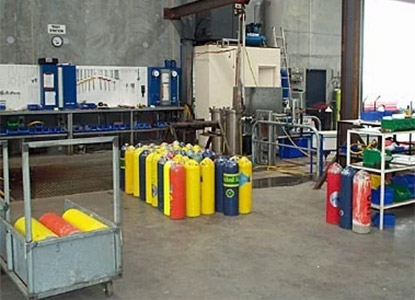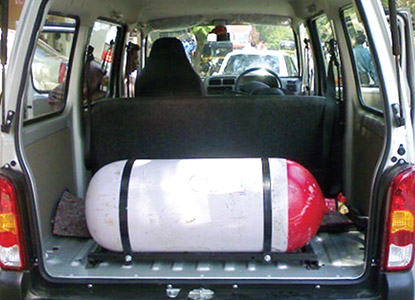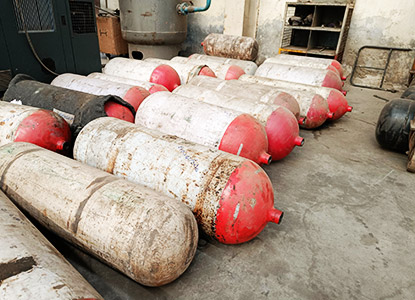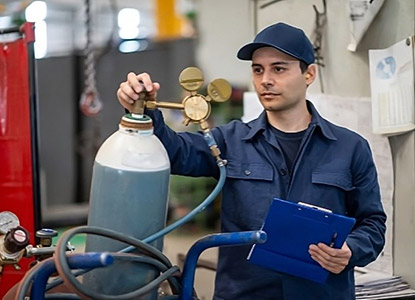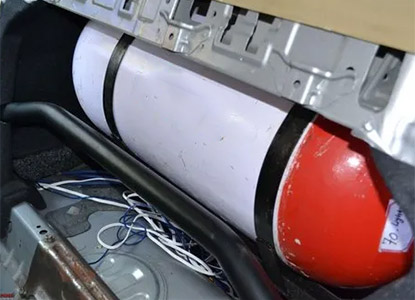CNG Cylinder Testing in Delhi, Government Approved CNG Cylinder Testing in Delhi, PESO Certified CNG Cylinder Testing in Delhi, Affordable CNG Cylinder Testing in Delhi is a critical procedure for ensuring the safety, performance, and compliance of CNG-powered vehicles. CNG cylinders are designed to store gas under extremely high pressure, typically between 200 to 250 bar, which over time leads to wear and fatigue due to pressure cycles and environmental exposure. To mitigate risks such as leaks or explosions, periodic hydrostatic testing, CNG Cylinder Hydro Testing is mandated by regulatory authorities. This non-destructive testing method involves filling the cylinder with water, pressurizing it to a level 1.5 times its working pressure and observing it for any signs of leakage, deformation or permanent expansion. Om Cylinder Testing Company, serving Delhi, provides affordable and government-approved CNG Cylinder Testing services. The test ensures your cylinders structural integrity and determines whether it is safe for continued use. This process not only enhances vehicle safety but also prevents costly failures and ensures compliance with national safety standards like PESO and ISO 11439.
CNG Cylinder Testing in Delhi, Best CNG Cylinder Testing Service in Delhi, Vehicle CNG Cylinder Testing in Delhi, CNG Cylinder Inspection Services in Delhi is typically required every three years, as per regulatory mandates. At Om Cylinder Testing Company, the entire process is carried out using calibrated, high-precision equipment under strict safety protocols approved by the Petroleum and Explosives Safety Organisation (PESO). The testing procedure includes visual inspection for corrosion or damage, thorough internal and external cleaning, hydrostatic water jacket testing, and drying of the cylinder. If the cylinder passes all safety checks, it is issued a Test Certificate and Compliance Plate with a new valid testing date, which is also stamped on the cylinder itself. In case the cylinder fails, it is condemned and permanently removed from service to eliminate any safety hazard. Our certified professionals ensure accurate results, and we strive to make the service accessible by offering affordable prices for CNG Cylinder Testing in Delhi. Regular hydro testing not only meets legal compliance but also contributes to the fuel systems longevity and operational efficiency. Trust Om Cylinder Testing Company for safe, reliable and certified CNG cylinder testing.


